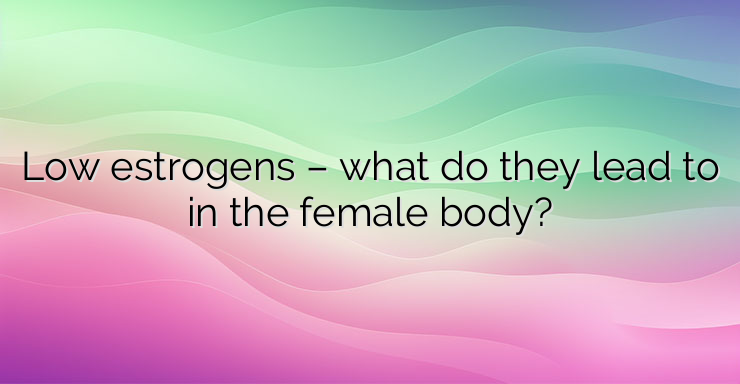Estrogens are known as female sex hormones. Like testosterone in women, little estrogen is secreted by the male body. Usually associate estrogens with female beauty and sexuality, at a certain period of our life with the menstrual cycle and our reproductive abilities. However, these hormones have a bearing on our overall state of health – from bone health to our emotional balance. Estrogens are synthesized in the largest amount by the ovaries. When their level is low, it is most likely and the first thing to look at is whether there is a problem with ovarian function. It is normal for estrogen to decline with age as ovarian function declines towards menopause. The first indications of changes in this direction are not visible, they began several years before the critical period in question. Estrogens can also drop due to prematurely depleted ovarian reserve. This is when signs of menopause are observed around the age of 35 and earlier. NEWS_MORE_BOX Among the causes of low estrogen levels can be: thyroid dysfunction, excess weight, excessively demanding physical regimen, pituitary hypofunction, Turner’s syndrome, chemotherapy. How does estrogen deficiency manifest itself in the body? Ovulation depends on estrogens. When they are below the norm, it affects the menstrual cycle. The woman reports irregular menstruation. It affects reproductive abilities. The presence of estrogen is important for the production of natural vaginal lubricant. One of the causes of vaginal dryness is low estrogen. It is possible that sex is associated with painful sensations because of this. Hot flashes during menopause also occur due to decreased estrogen levels. If they appear earlier in life, it is good to keep one in mind and check their values. With a drop in estrogen, a woman is much more susceptible to urinary infections. One of the most unpleasant consequences of estrogen decline is the deterioration of bone health. Not surprisingly, postmenopausal women are at risk of bone loss, osteoporosis, and fractures as a result. Estrogen is strongly linked to our emotional state and the production of serotonin in the brain. The latter is responsible for the good mood. An unstable emotional state can also be attributed to this relationship. Depression too. These sex hormones are tied to weight in women. In perimenopause and menopause, its low values are also to blame for weight gain. This is expressed by the accumulation of fat deposits, especially the belt around the waist, hips, and thighs. According to recent research, low estrogen in middle age is the culprit behind the accumulation of fat in the abdominal area. The only way to avoid this effect in and after menopause women is to improve physical activity and maintain a healthy diet.


Leave a Reply